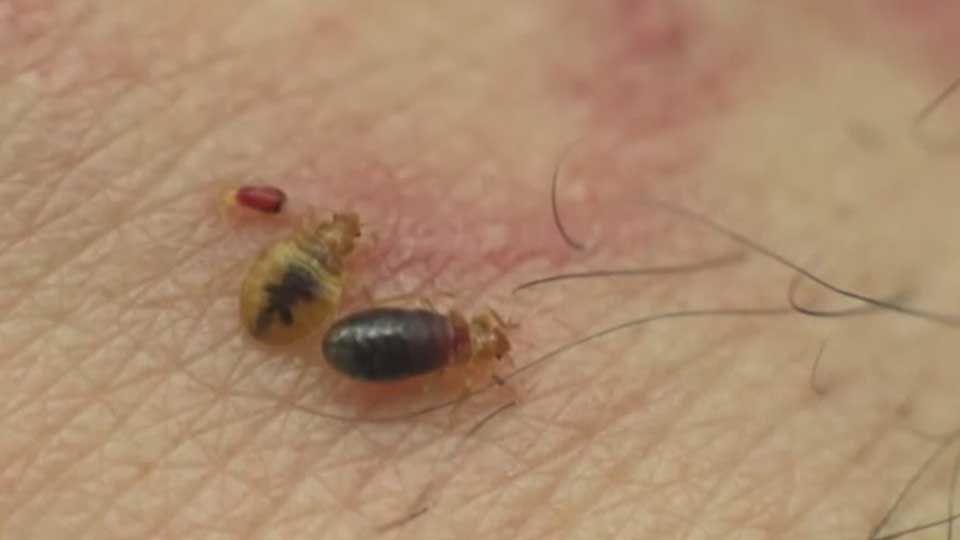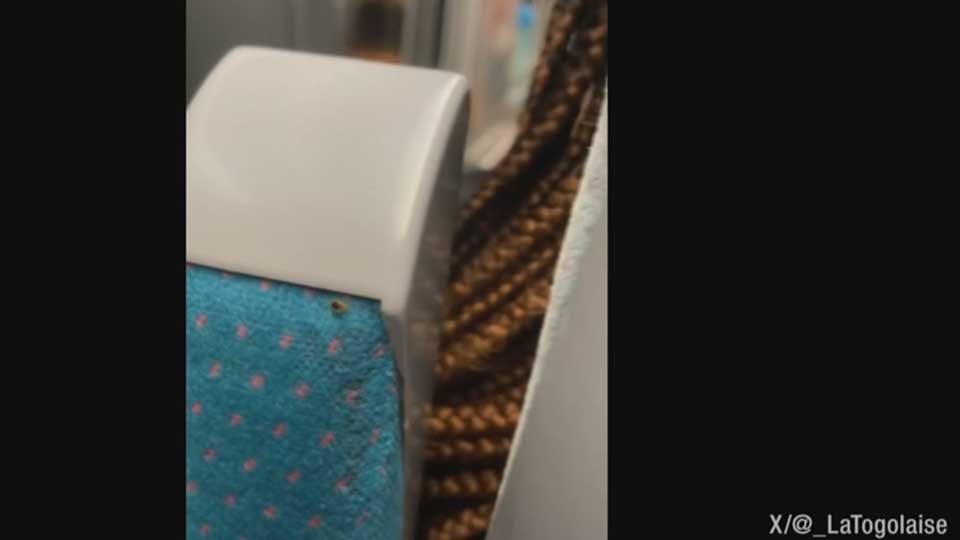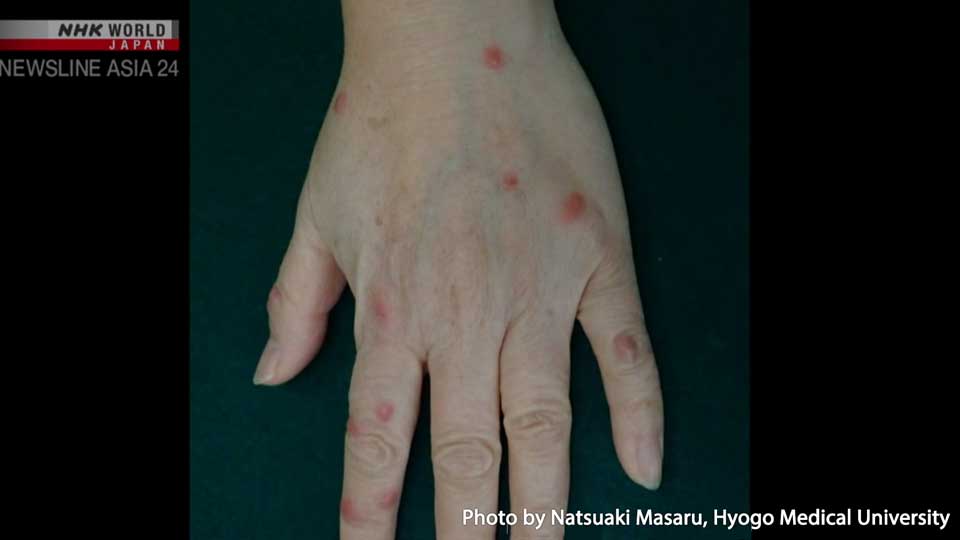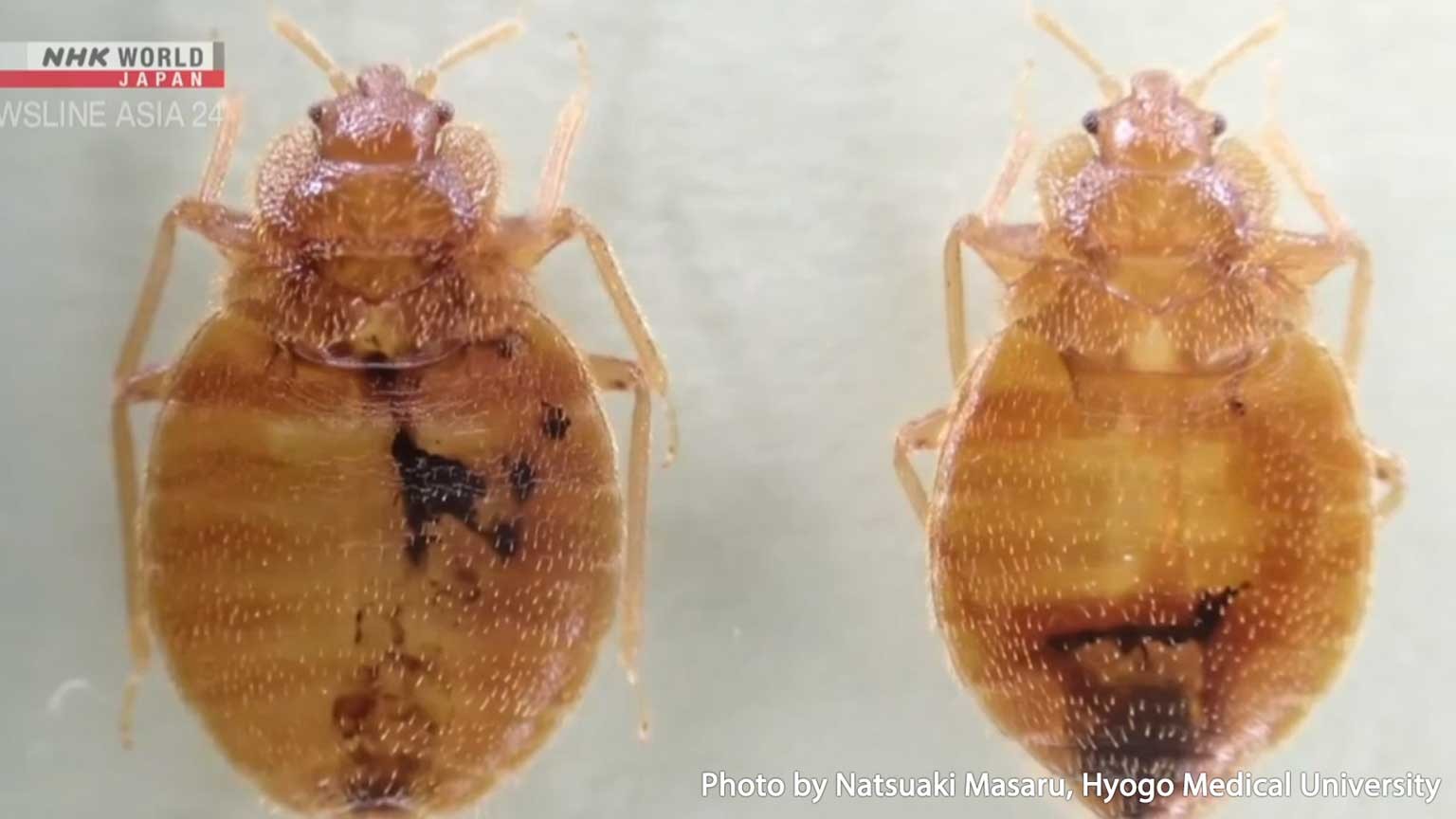Officials in Seoul are contending with the country's biggest outbreak of the tiny, biting pests in 40 years. They've logged more than 180 infestations in the past three months. Prior to that, they say, there were just nine cases since 2014. The local media have dubbed the outbreak a "bindemic," a play on the Korean word for the insect, bindae.

The nocturnal, bloodsucking creatures have a bite that triggers an allergic reaction in some people, causing intensely itchy welts.
Bedbugs usually hide in cracks and gaps in furniture during the day. Their evasive skills, coupled with the female's ability to produce hundreds of eggs, means populations can easily explode.

Campaign to squash bedbugs
South Korean authorities recently launched a month-long campaign to eradicate the pests. They've sent experts out to inspect more than 140,000 high-risk sites, including budget hotels, saunas, and university dormitories.

Officials in the capital, where more than half of the recent infestations have occurred, are offering financial support to any low-cost lodgings that are battling outbreaks.
Eom Hyun-sook oversees the government's pest control measures. She says authorities are working hard to keep public anxiety in check and limit damage to business. Their intensive efforts are already paying off, she says, with infestations on the decline.

A global problem
The resurgence in South Korea comes just weeks after an outbreak in France. Viral videos of the insects in trains, buses and cinemas there triggered panic and prompted a scrambled response from the government, which is eager to contain the threat before the 2024 Olympics.

Experts say an increase in infestations is usually linked with travel by people who unwittingly carry the insects across borders in their clothing and baggage. The tendency would explain the findings of experts in South Korea. They say the bedbugs they've been fighting appear to be a type they haven't seen before.
The insects may now be on their way to Japan. Although Tokyo largely eradicated bedbugs in the 1970s, the national pest control association has recently detected an uptick in cases. It recorded nearly 700 calls in the year from April 2022.
Natsuaki Masaru, an expert in insect-related dermatitis at Hyogo Medical University, says the main reason for the global resurgence is that bedbugs have developed resistance to common insecticides. The sharp rise in global travel following the coronavirus pandemic is also aiding their spread. The combination of these two factors means Japan is unlikely to be spared, he says.

Natsuaki says most people won't experience a reaction to their first bedbug bite. After several bites, however, the body's immune system can respond with an allergic reaction. The symptoms usually flare up a few days later. Although the itching will subside within a week or two, the bites probably won't, meaning the cycle of suffering is likely to continue for some time. This is because bedbugs are not solitary creatures, Natsuaki says. If you find one, it means there are usually many more nearby.

Keeping bedbugs at bay
Natsuaki says keeping a home free of bedbugs has nothing to do with maintaining hygiene, because the insects can thrive even in the cleanest of spaces. Instead, he says, it's important to take precautions when traveling, because the main way the insects spread is by getting into suitcases. When staying at a hotel, for example, you should take care not to scatter your clothes and other belongings around the room. Keep everything in a large plastic bag near the entrance.
Once the pests are in your home, Natsuaki says, it's very difficult to get rid of them yourself. The best course of action is to call a professional to come and fumigate each room.
The advice may prove timely. End-of-year vacations are just around the corner, providing the perfect opportunity for the tiny pests to hitchhike on holidaymakers and ruin a festive season.

